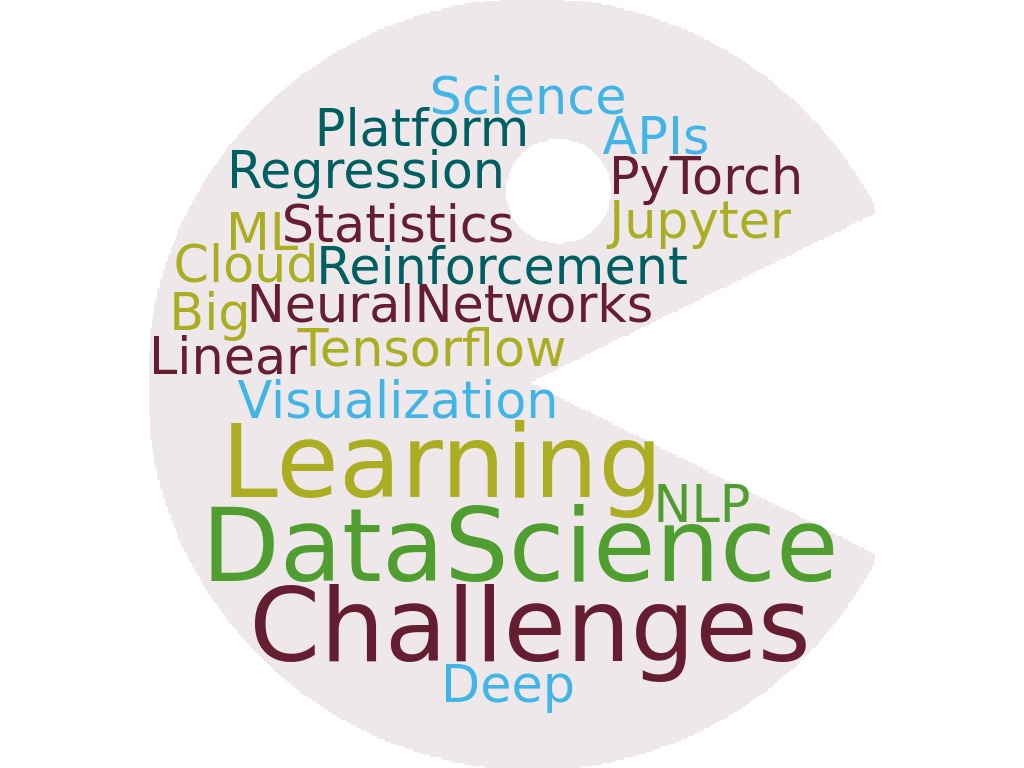Introducing Data Science Challenges
Become a better Data Scientist by working on Data Science Challenges. Because that’s what heroes do!
Introduction
Data Science Challenges is an opportunity to flex your data science muscles by working on various types of Data Science projects. Projects will span the full gamut of Data Science - from working with APIs to cleaning, analyzing and visualizing data, to building machine learning models and deploying them as web applications/services.
My hope for this project is that it enables anyone interested in Data Science to expand upon their existing skills by building hands-on open-ended projects. This project is aimed at people who are comfortable programming, have gone through some online courses and are looking to challenge themselves by applying their knowledge and skills.
Interested in getting started? Here is the Github repo that you can fork.
Background
A few weeks ago, Andrew Key and I started working on a project called macaw. The goal was to build better search and filtering capability for Meetups. Building the project would have encompassed web scraping, working with Meetup’s API, building a data pipeline and API, etc. So it was also an opportunity for us to flex our data science muscles. Following the project’s launch, we discussed lots of cool engineering ideas and viable paths.
A few weeks later, we had nothing but an initial demo script showcasing the capabilities of Meetup’s API that Andy had written. We weren’t making much progress.
More importantly than the Meetup functionality, I was so wishing we could build, we weren’t flexing our data science muscles. Mostly because I was stuck in analysis paralysis trying to start this project by scraping Meetup.com and being overwhelmed by the sheer number of paths we could take.
So we decided to switch things up by challenging ourselves.
Pivot to Challenging Ourselves!
We challenged each other to use the Meetup API to come up with a list of Meetups that were based in our respective cities (San Francisco, California, and Vancouver, British Columbia) within 1 hour.
And Data Science Challenges was born!
Well… not quite yet.
We got to working and ended up spending about 90 minutes before re-convening to see how much progress we had each made. We didn’t even end up answering our original question.
At a high level, we both ended up with very interesting insights which would need further time to dive deeper into. (As a teaser, did you know there is a Tech Meetup group in San Francisco, California with over 36,000 members when most (almost ~90%) are made up of ~1700 members? Crazy!) Again, we saw so many possibilities of taking the next steps. But this time, we were more disciplined! We decided to give ourselves 1 week to further explore the data, come up with insights and to blog about them.
So what happened next? What brilliant insights did we learn about our local Meetups?
…Not much. Well, we hit a logistical issue - we were working from one branch in our repo which we had both made changes to locally. Yes, yes we could have easily solved it. That’s not the point. We wanted to make it more clean, organized and easily accessible to folks. So we got to thinking…
A New Idea is Born
We both really enjoyed the structure we had created:
- Come up with an open-ended question, give yourself a set amount of time to see what you could explore and find
- Then give yourself some more time to dig deeper into this rabbit hole and
- Write up about your findings to share with the world.
But we needed some more structure:
- We needed a place to host the challenges and make them easily accessible to anyone who wanted to use them
- We needed a place to work on the challenges independently
- We needed a place to write-up about our findings
So what did we do?
We created a Github repository to host the challenges themselves as Markdown files, organizing each challenge into its own folder. We both forked this repository to create our own, so we could work on them independently without clashing with each other.
And Data Science Challenges was born! Yes for real this time :)
Why Data Science Challenges
We created Data Science Challenges due to a few reasons:
- You get better by trying and iterating on your original ideas, not by trying to create 1 perfect solution
- An opportunity to work on hands-on applied projects vs. taking another online course
- Get exposure to various types of Data Science work: cleaning data, visualizing data, building and deploying Machine Learning models, etc.
